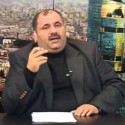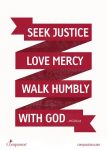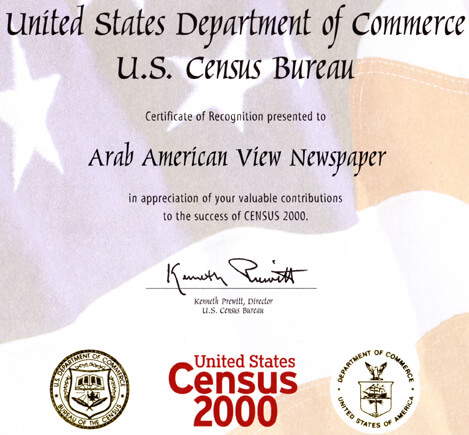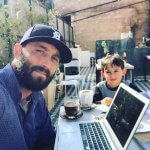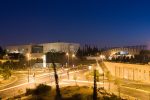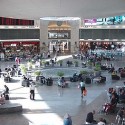Christian Orthodox prepare for Easter celebrations
Easter is a special holiday for Christians because more than Christmas, it brings Christians closer to their faith. Although both Easter and Christmas are commercialized by big business and greed, Easter resonates more. Orthodox Christians celebrate Easter after mainstream Christians, mainly because the Orthodox remain on the old Julian Calendar, not the Gregorian Calendar. It’s not only a difference between dates but also tradition
By Ray Hanania
There is one positive side to being Arab in America, especially a Christian Arab. It has less to do with the way we are treated by Americans — most Americans don’t see a difference between Christian Arabs and Muslims and treat all Arabs, mainly because of anti-Muslim racism, as being the same.
Of course we’re not. But when it comes to politics, although I am a Christian Arab, I consider myself to be Muslim by culture because Christian Arabs receive more support from Arab Muslims than they do from American and Western Christians who long ago abandoned their religious foundations in Bethlehem, Jerusalem and the Holy Land of Palestine.
It’s a sad fact that many American Christians worship images of Bethlehem, but ignore the reality of Bethlehem today, which means little to them.
The real benefit of being Christian Arab American is that we get to celebrate Christian holidays twice because of a 13 day difference between the Westernized Gregorian calendar and the original Julian Calendar.
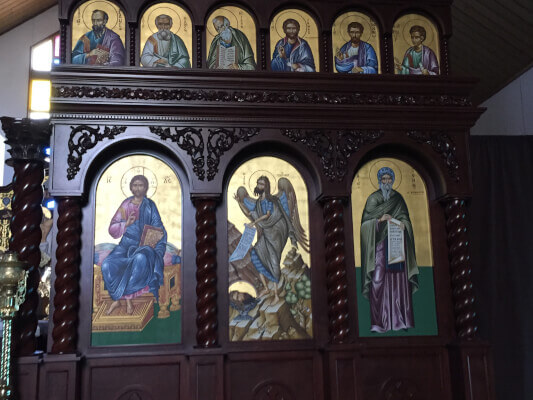
Orthodox Christmas is celebrated two weeks after traditional Christmas. But Easter is celebrated a week after traditional Easter mainly because of the Christian ties to Judaism. Under the ancient Christian tradition, the celebration of Orthodox Easter must come right after the celebration of the Jewish Passover, which this year began on Friday March 30.
Sometimes the Orthodox Easter and the Jewish Passover will occur at the same time.
There’s also the issue of the full moon, which takes us way into an intricate calculation.
Although the majority of the people of the Middle East live in the Arab World, it’s actually very close to other non-Arab Orthodox communities and countries, like Greece. For many generations, the Orthodox Christian Arabs described themselves as “Greek Orthodox.” Arab Christians and Greek Christians were in one-step together on almost every issue. But that changed when the Greek Orthodox Church began cultivating closer ties to Israel, abandoning the rights of Arab Christians in occupied Palestine.
The Greek Orthodox Church and the Arab Orthodox Church broke up sometime int he 1990s over the sale of Orthodox lands to Israel’s government, which takes all lands and places them only in a trust for its Jewish citizens. So, even if you are a Christian or Muslim citizen of Israel, under Israeli laws, you have no real rights to land ownership. You may own lands but Israel’s government can take away those rights anytime they want, and they often do.
Arab Orthodox Christians often refer to themselves now as Antiochian Orthodox Christians, reaching back to the origins of Christianity which found refuge in Antioch following the crucifixion of Jesus in Jerusalem. Antioch is located in Turkey, the Ottoman’s. During the rise of Islam, the Orthodox Christians moved their patriarchate from Antioch to Syria. Many Greeks moved the Patriachate to Cyprus. (Orthodox Christians refer to their religious leader as the Patriarch, as Catholics refer to their leader as Pope.)
Under Roman rule, Antioch was considered the regional capital of the Roman Provence of Syria. Syria was a large area that encompassed most of today’s Arab World countries.
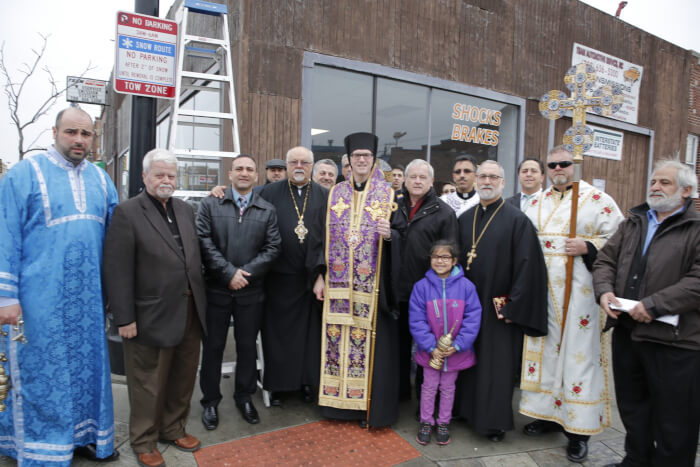
Of course, you can imagine that Christians, being persecuted by the rampaging Roman armies and by the Jewish (Hebrew) Pharisees, fled and carried with them the testaments of the disciples of Jesus, the most important being Peter and Paul. Of course, you can’t have two leaders, so the Orthodox turned to Peter while other Christians (today’s mainstream Catholics) turned to Paul.
Peter founded the first church in Antioch (which is actually called Antakya today in modern-day Turkey). He later moved the church to Rome.
At this point, you can try to follow all the rivalries and church splits but honestly, it’s too much minutia. However they ended up, Christians found themselves split into two main Christian churches of power, and then further sub-divided into different Christian denominations often reflecting who held sway over Jerusalem and Bethlehem in Palestine. (Although today’s Israelis would like you to believe that Palestine never existed, to Christians Palestine existed as a religious region and the heart of the Christian spirit for centuries. Oftentimes, travelers would write about visiting Syria and Palestine, the former discussing the culture of the Arab world and the latter in discussing the origins of the Christian religion.
All this confusion made it easy for Christian Arabs in America, like my family, to just accept what they could. And we rarely questioned the differences. The Greek Orthodox in my life at the time were as close to me as were Arab Orthodox. We were both Christians separated by a misguided mainstream Christian church, although we might go to the mainstream church out of convenience.
Yes, I was confirmed in the Protestant, Lutheran Church mainly because Bethany Lutheran Church at 90th and Jeffrey Avenue on Chicago’s Southeast side was closer than St. George Church in Oak Park, and more convenient. The goal was to strengthen the religion, not the piety of the church elders.
Easter as an Orthodox Christian
We would offer the same prayer as all Christians around Easter. “Christ has risen,” we would proclaim as a welcome among our Christian brothers and sisters. You didn’t have to be a religious fanatic either to wear your religion on your shoulder. Most did not all year round but did embrace this deeper Christian religious pride around the Christian holidays.
Easter was the most important because it symbolized the rise of Christianity and of Jesus, the Christ.
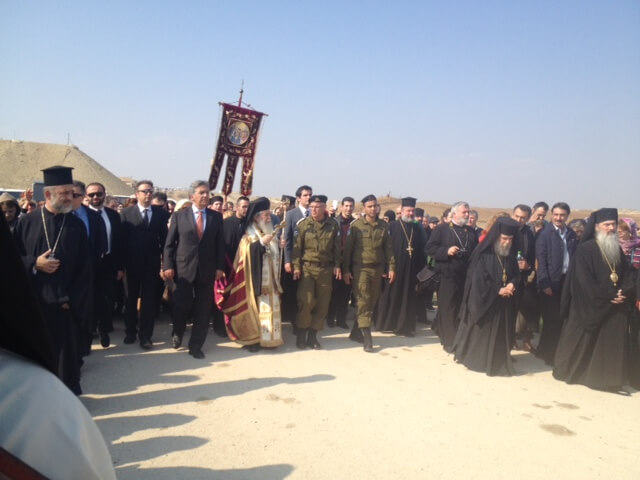
Easter was celebrated with red (or purple) dyed eggs. Meals would include traditional Arab feasts, but also Greek foods and recipes, too. For many years, Greeks and Arabs were very close. Mageiritsa is a Greek soup of organ meats, lettuce, dill, scallions and egg-lemon liaison, which I never really liked much, but mom still made. We didn’t look at it as being “Greek.” We just looked at it as being Orthodox.
Children and families would also take their purple dyed eggs and have “egg fights” — One person holds their egg and the other one taps it; one says “Christ has risen,” and the other responds “Christ has risen indeed. The person cracking the most eggs gets a religious blessing of luck for the coming year. We didn’t use lots of colors for the eggs, just one, passion purple (deep red) … same color as the Henna they used for celebratory designs on women’s hands, sometimes faces.
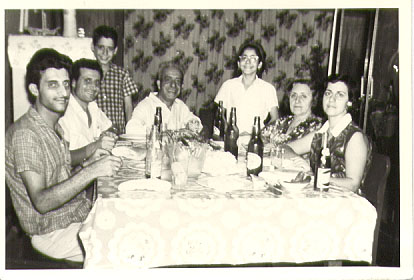
Not everyone got to celebrate two Easters every year. We celebrated two Christmases, too, but because it’s so cold in December and January, you didn’t see the duplication of the holiday as much as you did Easter every spring. The duplication was more obvious because of the warmer weather.
My mom used to spend the night before and all day cooking. The menu would include stuffed grape leaves, spring lamb, stuffed zucchini, tabouli or Jerusalem salad, and of course, Arabian coffee that my mom would read the future from the grinds in the bottom of the cup and turn it over upside down on the cup saucer. Then, she’d have you push your thumb in the bottom of the cup after the read for a special interpretation.
Easter was always a lot of fun, especially because school was usually out for two weeks (not just one week like it is for many kids today). It was a big vacation break from school, plus, the weather was always nice and warm.
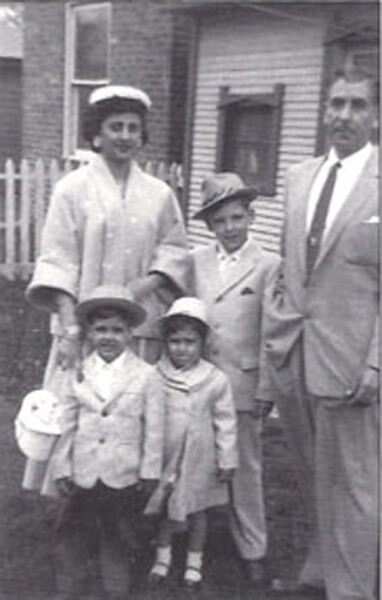
Although my parents put us in the Lutheran Church because it was close to the house, we would go to the Orthodox Church (originally in Oak Park, 1149 north Humphrey under Father Anthony Gabriel and later Father Athanasios Emmert). Today, St. George Antiochian Orthodox Church, 1220 60th Court, is headed by the Very Rev. Fr. Nicholas Dahdal, Economos.
It was along drive from Chicago’s Southeast Side to Oak Park in those days … but the Orthodox Easter celebrations were so much more magnificent … and often they church would have a Easter picnic nearby where they served roasted lamb, grape leaves and tabouli.
The Arab Christian experience in America is important because Arab Christians remain as the last real link between the origins of Christianity and the Christians who evolved in the Western World.
I just wish, sometimes, that Western Christians could see how important that heritage is, and commemorate it rather than turn their backs on it.
Christian Arabs continue to suffer, not just in the Muslim World but in the mainstream Christian and i the Jewish Worlds, too. The worst crimes against Christian Arabs take place at the hands of Israel’s extremist and secular government. It is Israel that is taking away Christian lands, like the lands belonging to my family between Bethlehem and Jerusalem.
Supporting Israel without demanding that they respect the full rights of Christians is unChristian-like. But if you stand up for the rights of Christian Arabs in Israel, you must also stand up for the rights of Arab Muslims in Israel.
That doesn’t mean Christian Arabs do not face threats from extremists in the Muslims World. They do. But unlike in Israel, most Arab Governments respect and protect Christian Arabs. Christian Arabs have always been equals under Arab government eyes and often given greater privileges.
That’s my Easter wish. That Israelis wake up and confront the extremism of their government and push for a real peace, and that Western Christians stop ignoring their religious heritage and recognize that their hearts trace back to the Palestinian Christians as does the first acts of Jesus, a Jew whose sacrifice created the Christian religion, as complicated as it may be today.
Many of today’s Christians are Jews who converted to Christianity, embracing their Jewish heritage but also the Word of God through Jesus Christ.
So who are the real “Chosen people.” If you believe in Jesus Christ, the answer is simple, the Palestinian Arab Christians.
(Ray Hanania is a Palestinian American columnist, veteran political journalist and author of several books, including “Power PR” and “Yalla! Fight Back.” Reach him through his website at www.Hanania.com.)


- Israelisnipers shooting and killing hospital workers in Gaza - December 11, 2023
- CAIR Condemns Israeli Executions of Wounded, Unarmed Palestinian in West Bank - December 11, 2023
- Arab and Muslim American voters face a “simple choice” between Biden’s inhumanity and Trump’s edgy politics - December 9, 2023














